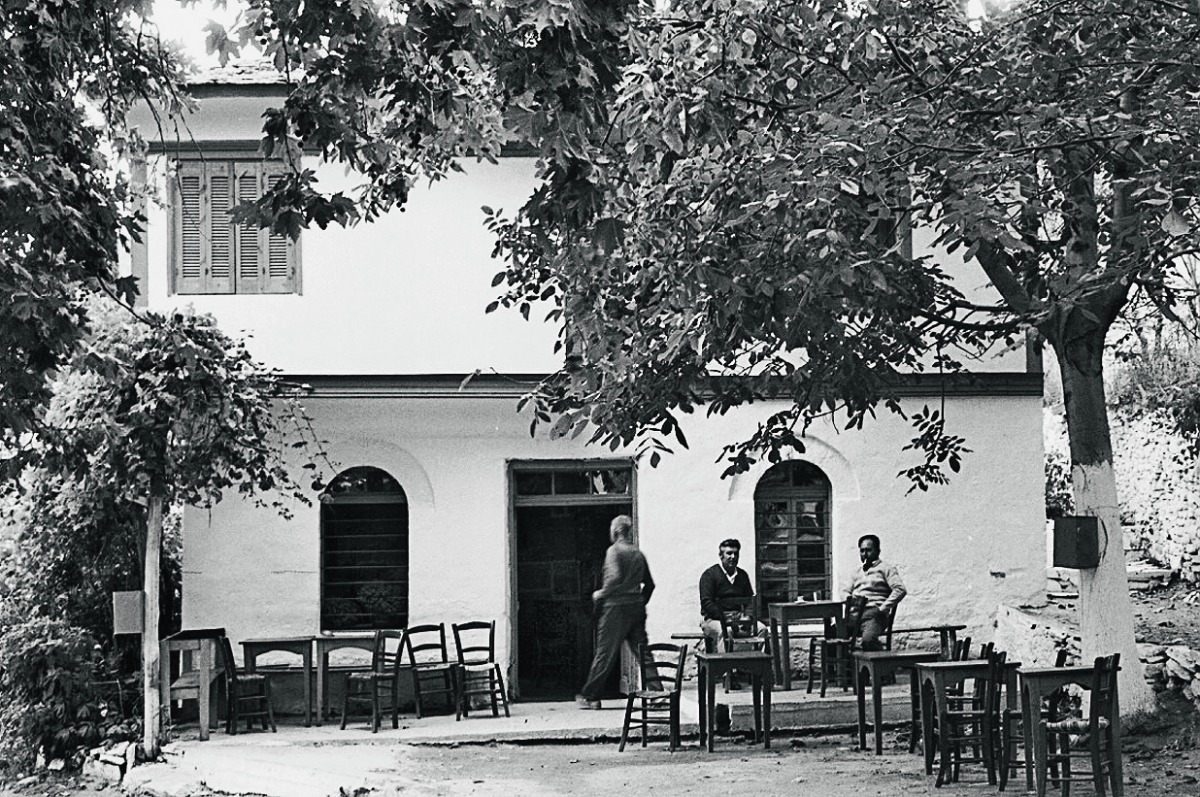The depopulation of rural Greece began decades ago, when after the war, residents of rural areas sold their fields to buy an apartment in an urban center. However, just a few years ago, you could still find a café (the traditional kafenion) in the village square to have a coffee. Today, traditional Greek cafés are a relic of the past.
“When a café closes, it’s like the heart of the village stops beating,” says Yiannis Hatzinas from Lofisko, Thessaly, a small village 24 kilometers from Larissa. The café closed in 2015. The village became deserted, and there were no longer any patrons.
In the heart of many Greek villages, life once revolved around traditional Greek cafés—a hub where the rhythms of daily life intertwined with moments of social and political significance. It was here that the postman delivered letters, phones rang, and the first radio broadcasts filled the airwaves. As technology advanced, the first jukebox and television sets found their home in these cozy establishments.
But as time marches on, these iconic cafés are vanishing, leaving behind a void in rural communities. For many, the closure of these cafés signifies more than just the loss of a meeting place; it symbolizes the erosion of village life itself.
George Kanakis, a resident of Koukouri in Larissa, reflects on the impact of such closures: “When the school, pharmacy, and café close, there is no longer a village.” In his village, the dwindling population paints a stark picture—out of 280 residents, only 80 remain. Those who have left seldom return, and with the closure of the village café, there is no longer a central gathering point.
Yet amidst this trend, there are glimmers of hope. In Dotsiko of Grevena, in northern Greece, 30-year-old Evangelia Sanida has taken a bold step; she has opened her own traditional café, determined to breathe life back into her village. Situated in the picturesque mountain village, her café stands as a beacon of resilience at an altitude of 1,060 meters.
“I remember we opened it on July 6th,” Evangelia recalls with pride, her venture garnering early success. Located very close to the Vasilitsa ski resort, her café has become a destination for locals and tourists alike.
Evangelia’s decision to return to her roots speaks to a deeper sentiment among Greece’s youth. For her, and others like her, the motivation lies not in financial gain, but in a profound love for their homeland. As she puts it simply, “The only thing that motivates young people to return to their villages is love for their homeland.”



